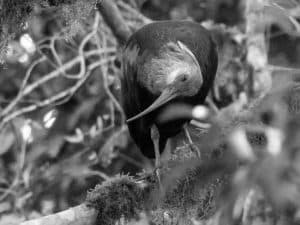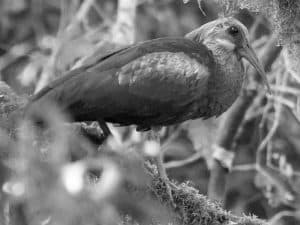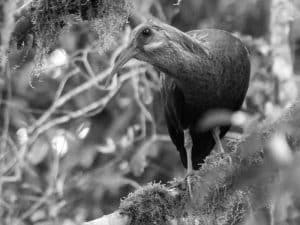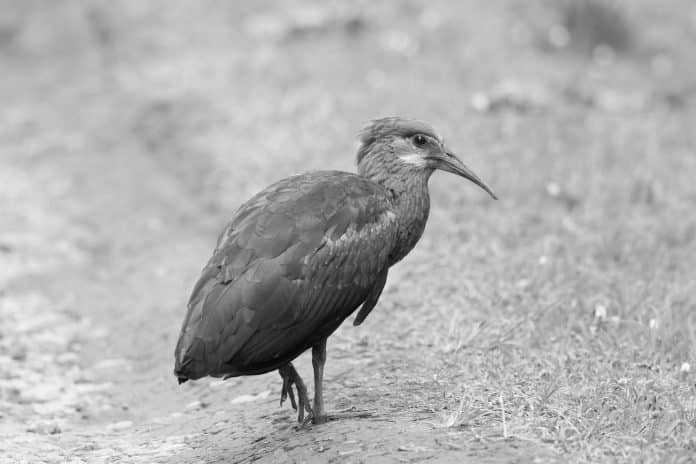Introduction to the Olive Ibis
Welcome to the fascinating world of the Olive Ibis, a magnificent and enigmatic bird species that graces the landscapes of Tanzania. The Olive Ibis in Tanzania, scientifically known as Bostrychia olivacea, is a rare and captivating bird that has captured the attention of bird enthusiasts and conservationists alike. This unique avian species holds a special place in the rich tapestry of Tanzania’s biodiversity, and its presence serves as a testament to the natural wonders that abound in this East African nation.

The Olive Ibis is characterized by its striking appearance, with a predominantly olive-brown plumage that exudes an understated elegance. Its long, slender bill and distinctive curved crest add to its allure, making it a sought-after sight for birdwatchers and nature lovers. The bird’s enigmatic nature and elusive habits have only added to its mystique, drawing researchers and conservationists into a quest to unravel its secrets and ensure its continued existence in the wild.
Habitat and Distribution of the Olive Ibis in Tanzania
The Olive Ibis is primarily found in the lush and verdant habitats of Tanzania, where it thrives in the dense forests, woodlands, and riverine areas. This species has been observed in various regions across the country, including the coastal forests of eastern Tanzania, the montane forests of the Eastern Arc Mountains, and the miombo woodlands of central and southern Tanzania. Its presence in these diverse ecosystems underscores the adaptability and resilience of the Olive Ibis, as it navigates the intricate tapestry of Tanzania’s natural landscapes.
These habitats provide the Olive Ibis with essential resources such as food, shelter, and breeding sites, allowing the species to perpetuate its existence amidst the rich biodiversity of Tanzania. The presence of the Olive Ibis in these distinct habitats also highlights the interconnectedness of ecosystems and the importance of preserving the delicate balance that sustains the avian life within Tanzania’s borders.
Conservation Status and Threats

Despite its remarkable presence in Tanzania, the Olive Ibis faces a range of threats that have contributed to its vulnerable conservation status. The International Union for Conservation of Nature (IUCN) has classified the Olive Ibis as “Near Threatened,” reflecting the precarious position of this species in the face of escalating environmental pressures and human activities.
The primary threats to the Olive Ibis include habitat loss due to deforestation, agricultural expansion, and infrastructure development. These activities have encroached upon the bird’s natural habitats, leading to fragmentation and degradation of the ecosystems that sustain the Olive Ibis population. Additionally, the illegal wildlife trade and hunting pose significant risks to the Olive Ibis, further exacerbating the challenges that the species confronts in the wild.
Research and Efforts in Protecting the Olive Ibis
In response to the conservation challenges facing the Olive Ibis, dedicated researchers and conservation organizations have embarked on initiatives to study and safeguard this remarkable species. Through rigorous field research, scientists have sought to gain in-depth insights into the Olive Ibis’s ecology, behavior, and population dynamics, laying the foundation for evidence-based conservation strategies.
Furthermore, collaborative efforts between governmental agencies, non-profit organizations, and local communities have led to the establishment of protected areas and conservation programs aimed at preserving the Olive Ibis’s habitats and mitigating the threats it faces. These initiatives encompass habitat restoration, community engagement, anti-poaching measures, and awareness campaigns, all of which are instrumental in safeguarding the Olive Ibis and its natural environment.
Unique Behaviors and Characteristics
The Olive Ibis possesses a myriad of unique behaviors and characteristics that distinguish it as a captivating and enigmatic bird species. One of the most notable traits of the Olive Ibis is its elusive nature, as it often remains concealed within the dense foliage of its forest habitats, making sightings a rare and cherished experience for birdwatchers.
In addition to its elusive tendencies, the Olive Ibis is known for its graceful foraging behavior, as it delicately searches for insects, small vertebrates, and plant matter amidst the forest floor and understory. The bird’s distinctive vocalizations, characterized by melodious calls and reverberating coos, add to its allure, echoing through the forest canopy and signaling its presence in the hidden realms of Tanzania’s wilderness.
Birdwatching and Eco-Tourism Opportunities
For avid birdwatchers and nature enthusiasts, Tanzania offers unparalleled opportunities to encounter the Olive Ibis in its natural habitat. The country’s diverse array of national parks, forest reserves, and conservation areas provide ideal settings for observing and appreciating the avian wonders that abound within its borders.
Venturing into the Eastern Arc Mountains, the coastal forests of eastern Tanzania, or the miombo woodlands of the country’s interior unveils the potential for memorable encounters with the Olive Ibis and a myriad of other bird species. These eco-tourism experiences not only offer the chance to witness the Olive Ibis in its natural element but also contribute to the local economies and conservation efforts that sustain Tanzania’s natural heritage.
Cultural Significance of the Olive Ibis in Tanzania

The Olive Ibis holds a special place in the cultural tapestry of Tanzania, where it is revered as a symbol of natural beauty and ecological harmony. Across various indigenous communities, the bird is imbued with cultural significance, often featuring in folklore, traditional art, and spiritual narratives that celebrate its presence in the country’s landscapes.
Furthermore, the conservation of the Olive Ibis resonates deeply with the cultural values and traditions of Tanzania, as it reflects a shared commitment to preserving the natural heritage that has shaped the identity and livelihoods of the nation’s diverse populace. The Olive Ibis thus serves as a unifying emblem of environmental stewardship and the intrinsic connection between people and the natural world, inspiring collective efforts to safeguard its future and the ecosystems it inhabits.
How to Support Olive Ibis Conservation Efforts
There are various meaningful ways in which individuals and organizations can contribute to the conservation of the Olive Ibis and its habitats in Tanzania. Supporting reputable conservation organizations and initiatives that focus on avian conservation and habitat protection is a crucial step in safeguarding the Olive Ibis’s future.
In addition, promoting sustainable eco-tourism practices and responsible travel can help generate support for local communities and conservation efforts while fostering a deeper appreciation for the natural wonders of Tanzania. Engaging in advocacy and raising awareness about the conservation challenges facing the Olive Ibis can also amplify the collective voice calling for the protection of this remarkable species and the ecosystems it depends on.
Conclusion
In conclusion, the Olive Ibis stands as a testament to the captivating biodiversity that thrives within Tanzania’s diverse landscapes. Its enigmatic presence, unique behaviors, and cultural significance underscore the intrinsic value of preserving this rare bird species and the ecosystems it inhabits. Through collaborative research, conservation efforts, and sustainable practices, we can ensure that the Olive Ibis continues to grace Tanzania’s forests and woodlands, captivating the hearts and minds of all who encounter its rare and wondrous presence.


































